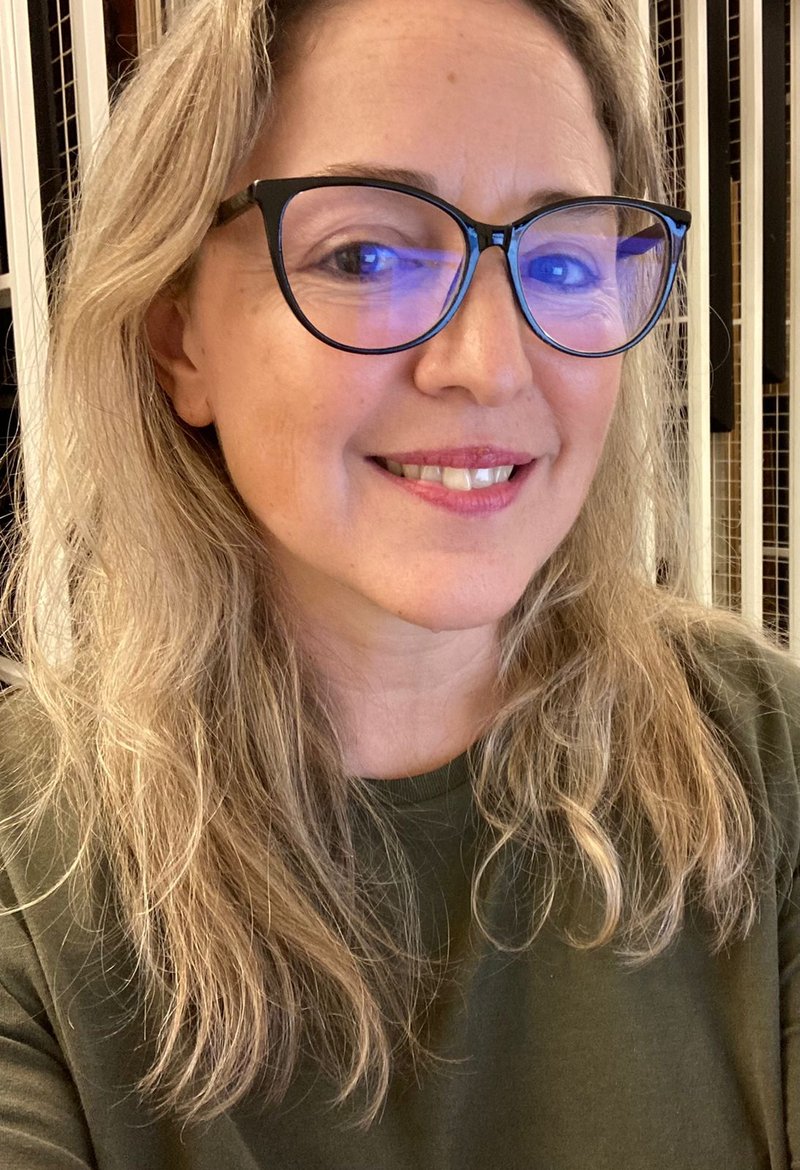Cintia Mezza

Conference Report. November 2023.
First of all, I would like to extend my thanks to CIMAM, ArtHaus, and Victoria Noorthoorn, along with the team at the Museo Moderno, for organizing this unique opportunity. While I have been aware of CIMAM and its meetings since my first post-graduate work at the Universidad de Buenos Aires, MALBA, and Fundación Proa, this was my first time truly participating and it was an unparalleled experience. That CIMAM was held in my own city and I was the recipient of a grant to attend provided me with many opportunities.
First, I was able to collaborate with the Museo Moderno, Victoria Noorthoorn, and my colleagues from the curatorial team to design and organize the circuits that were presented to participants so that they could choose to make visits according to their interests (Day 3), and thus connect with the vibrant art scene of Buenos Aires. Additionally, because of my experience in managing collections and archives, I was asked to take an active role as a guide and led a very interested group on a circuit of a selection of artists’ archives in the city. That experience, along with the institutional activities (Days 1 and 2) and the spaces to share breakfasts and lunch breaks with others, provided key moments for building bridges and professional and emotional ties with colleagues from around the world, sharing the challenges and similar problems museums face going forward.
Second, while the presentations over the course of the three days were key to understanding the current scene, I would like to single out those from Day 1 because of their relevance to my ongoing research as a doctoral student. My thesis addresses issues of accumulation in museums from a perspective of political ecology. My proposal is to rethink collections as well as contemporary non-objective art practices, as a means of paving the way for diverse museums with more dynamic missions that constantly adjust and change, and which are, above all, more alert to the environment: a world that is accelerated by climate change and digitally managed.
The presentations on the first day reflected on cultural legacy building from different perspectives, all the while weighing up past and future. The speakers questioned the colonial foundations upon which many museum practices are based; the voices – and linguistic paradigms – that inscribed those practices in history; and the operations through which, in the words of Elvira Espejo, “animate or inanimate” memories continue to be built. She opened the conference cycle and brought to the table her critical Aymara thinking based on co-creation and collective and plural construction in the face of a mono-culturalising pattern. She also spoke of the need to re-empower listening – to cultivate attention to other sounds and conversations in order to weave histories that better integrate us – as well as orality, or “oralitura”, which cannot be fully captured in translation. She concluded with an important message, telling us to “unlearn to learn”.
Bio
I am a specialist in Collections and Legacies Management (artworks, artistic practices and archival documentary funds). I have been working in museums and cultural and university institutions for more than 20 years, in the challenges of recording-cataloguing contemporary objectual and non-objectual practices: actions and performance.
I trained in Art History (UBA) and Visual Arts (UNA), in the NGO Management Postgraduate (UdeSA), and between 2015 and 2018, seeking to complement institutional leadership and management tools, I participated in the international programs Executive Education Program for Museum Leaders, Getty Museums; and Arts Administration Guggenheim Museum & New York University (NYU). In both programs I developed the basis of a project that articulates the university with cultural institutions, which was selected as the project of the cohort at NYU and is the basis for the Learning Space and critical pedagogies that I am currently developing at Fundación Klemm.
I currently work in university teaching in subjects, seminars and laboratories such as: Collection Management and Artistic Archives (UBA); Comparative Cultural Policies and Artistic Archives Laboratory (Master in Cultural Management, UdeSA); Accessibility and dissemination in archives (UNSAM), and guest lecturer in the Artists Program (UTDT).
Since 2022 I am a doctoral candidate at the University of San Andrés in the PhD in Cultural Criticism and Literature, with research topic "The Future of Collections: practices, management and new lexicons for collections, museums and archives to come". Among my latest actions: the presentation of research advances at the Symposium "What is to come. New technologies, digital cultures and expanded arts"; the moderation of the table-debate around the book Clima; and the presentation of the book Lo que no vemos, lo que el arte ve, together with its author Graciela Speranza and Carlos Huffman.